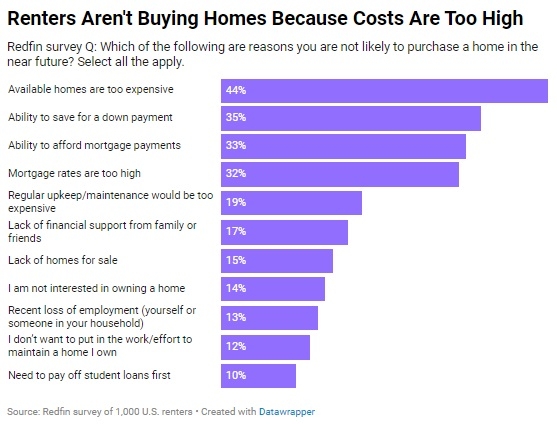Advertisement
Don’t Let America’s Lost Decade be Your Lost Decade

I recently was able to attend the Symposium on Mortgages and the Future of Housing Finance hosted in Washington, D.C. by the Federal Deposit Insurance Corporation (FDIC) and the Federal Reserve. The conference was a huge disappointment to me. In fact, I walked out after the first few sessions because it seemed that the conference was nothing more than another photo-op for the government to say they are doing something (while doing nothing) about the mortgage and housing mess.
One thing that sparked a fire inside of me was a brief mention of Japan’s “Lost Decade.” Japan went through an asset bubble collapse in the 1990s. The government of Japan did not have the courage to require the Japanese banks to write down their bad loans and own up to their losses. As a result, Japan’s economy stagnated for 10 years as real estate prices deflated and consumers were reluctant to borrow or spend money.
Compare this to America. This is the end of 2010 and our crisis started in 2007. We are 30 percent of the way toward a “lost decade” of economic growth in the United States. Our country may have another one, two or seven years to go before we make it out of this lackluster economic situation. Let’s appreciate the gravity of our situation: There is a whopping $766 billion of negative equity in the U.S. today. The government does not want to force mortgage lenders to write down this $766 billion of negative equity because if they did, most every financial institution in the U.S. would be bankrupt. This $766 billion problem could take years to resolve.
The government does not want to figure out a creative way to arrange a homeowner “bailout” by loaning homeowners $766 billion to reduce their negative equity because of “moral hazard” and “free market concerns.” To me, at least, this seems hypocritical for two reasons.
First, our government is willing to run up trillion dollar deficits and engage in trillions of dollars of “quantitative easing” in the name of “economic stimulus.” Spending $766 billion to wipe out the negative equity of millions of homeowners seems like a small price to pay compared to what we are doing now with these enormous deficits created by the U.S. Treasury and “quantitative easing” created by the Federal Reserve. Perhaps nothing would save us more money in the long run or stimulate our economy more than spending $766 billion to wipe out negative equity; no matter how repugnant this radical idea seems to those of us who believe in free market capitalism.
Secondly, $700 billion is the amount that the government loaned to Wall Street firms, and the U.S. Treasury is actually making a significant profit on their investment as the Wall Street firms get back on their feet. The same can be said for homeowners with negative equity. For example, what if the government paid down a homeowner’s negative equity in exchange for a non-dischargeable future lien on the homeowner’s earnings?
The bottom line is that our country has three choices:
1. Remove all government intervention in the housing market; in this case, the housing market will most likely fix itself after another five to 10 years of struggle.
2. Continue with the ineffective blend of free market capitalism and half-hearted government tinkering that we have been experiencing since 2007. In this case, who knows when the housing market will recover.
3. Fix the negative equity problem with some form of large scale government intervention. In this case, the housing market may be fixed sooner rather than later.
The bottom line is that it seems clear that we are 30 percent of the way toward a “lost decade” in the United States with no plausible end in sight. My question to you is what are you going to do about it? You cannot control house prices or economic cycles. You cannot control the government and what they do or do not do about the negative equity situation. However, you can control how you yourself respond to the world you find yourself in.
For example, you have three choices:
1. Get out of the mortgage business entirely and find some other line of work to generate an income for yourself and your family.
2. Approach your mortgage career with half the passion and ability that you are capable of.
3. Approach your mortgage career with 100 percent of the passion and ability that you are capable of.
When Wall Street and the financial markets were crumbling in the fall of 2008, Warren Buffett said that if he had the money, he would spend $700 billion to bail them out (aka, invest in their future). Incidentally, the U.S. government was the only entity on earth that had the kind of resources needed to arrange a large scale bailout. The government’s $700 billion bet is now paying off as Wall Street firms are reporting record profits once again and repaying their government loans.
As the mortgage industry goes through one turbulent change after another, you are the only one who has the kind of resources needed to bail yourself out (aka, invest in your future). You have a treasure chest of passion within you. It is up to you on where and how to spend it. Do you believe in your own future as much as the government believed in the future of Wall Street? If so, invest all of your $700 billion of passion and ability in your own future and you will reap the profits.
Let me ask you two questions:
1. When will people in the United States stop needing to live in homes, and when will they stop using mortgages to finance their house purchases?
2. When will people in the United States stop needing to restructure their personal finances and refinance their mortgages?
If you can answer never to the two questions above, you are a good candidate to invest 100 percent of your passion and energy into your career as a mortgage originator. Remember the three numbers we discussed in last month’s column (“The Three Numbers That Really Matter,” National Mortgage Professional Magazine, October 2010 edition):
►$6.96 trillion of home equity remaining in the U.S. equals plenty of people can still qualify for financing.
►$1.56 trillion of mortgage volume in 2010; half the volume of the boom years with half the competition equals equal opportunity for you to have a record year.
►Four million housing units sold on an annual basis in one of the worst years on record equals one top producing Realtor is worth at least 32 annual referrals to you.
The bottom line is that it is 100 percent possible to make this the best decade of your life, both personally and professionally. Don’t let America’s lost decade become your lost decade.
Gibran Nicholas is the founder and chairman of the CMPS Institute (CMPSInstitute.org—NMLS Provider ID# 1400384). The CMPS Institute administers the Certified Mortgage Planning Specialist (CMPS) designation and has enrolled more than 5,500 members since 2005. Through CMPS, Gibran empowers mortgage professionals with confidence, unique knowledge, and dynamic marketing resources to simplify compliance, increase their competitive advantage, and generate more business. Visit Gibran’s blog and Web site at http://gibrannicholas.com.
About the author





